Aromatherapy for Grief and Loss
Grief.
A single word for a complex multitude of emotions.
Grief is defined as “a keen mental suffering or distress over affliction or loss; sharp sorrow; painful regret.”
Simply put, grief is an emotional response to a loss. Often grief is associated with death, but we can also grieve other losses such as unemployment, ill health, relocation, the state of the world or the end of a friendship or relationship. Grieving goes beyond sadness, implanting itself within every cell of our body making a deep impression on our soul. It impacts physical health and can give us that sinking feeling also known as a “pit in the stomach” that never seems to go away.
We all grieve differently.
Some people cry. Crying is a natural healthy response to grief. Some people don't cry, which is also a natural healthy response to grief. Some talk excessively. Some don't talk. Some withdraw, some crave close contact with others. All of which are natural healthy responses to grief.
There has been some interesting research on how we process grief by several well-known psychologists. Dr. George Bonnano researched the grief response and how it is so different for everyone. His research focused on resilience, recovery, chronic dysfunction and delayed grief.
Dr. Elizabeth Kubler Ross wrote about the five stages of grief in her book "On Death and Dying". She studied the emotional responses of those who were terminally ill and the grieving process they went through. Her research showed there were 5 common emotional experiences, and this led to the "5 stages of grieving". Later on, she stated that those 5 stages were misunderstood and misinterpreted as some assumed the stages exist in a linear, universal approach to grief. However, the stages were meant to be a summary of emotions felt during the grieving process.
5 Stages of Grief
Denial
Denial is the conscious or unconscious refusal to accept facts, information or reality. It helps one minimize the overwhelming pain of loss. It is not only attempting to pretend or deny that the loss has occurred, but also an attempt to absorb and understand what has happened. Some may be in this stage for longer periods of time especially if grief is related to trauma.
Anger
Anger can manifest in different ways for different people. Someone can be mad at themselves or at others. As we try to process what is happening, anger serves as an emotional outlet.
Bargaining
When coping with loss, bargaining can exist to alleviate or minimize the pain. Bargaining comes from a feeling of helplessness and exists to try and change the situation to establish control again. In relation to death or sickness, one may bargain with God, for example "God, if you let her live, I will turn my life around." For other situations, bargaining may occur during the end of a relationship. For example, "Can we still be friends?"
Depression
Depression can mean different things for those involved. We begin to look at the reality of the situation and feel the loss more abundantly. Some people tend to pull inward as the sadness grows. Emotions arise such as sadness, regret, fear and uncertainty. While depression is a natural stage in grieving, it can be isolating therefore if you are struggling, it is important to reach out to others for help or seek professional help. We all need help through different seasons in life and therapy has been shown to be incredibly effective in our mental, emotional and physical health.
SAMHSA National Helpline
Substance Abuse and Mental Health Services Administration National Helpline, available 24/7
1-800-662-HELP (4357)
Confidential service that provides information and referrals if you or a loved one is struggling with mental health.
National Suicide Prevention Lifeline
998
Available 24/7 connects to a local crisis center where a trained worker will provide confidential support to people experiencing suicidal thoughts or emotional distress.
Crisis Text Line
Text 741741
Available 24/7 for those who feel more comfortable speaking via text message. A confidential and free service connecting you to a trained crisis counselor.
Acceptance
Acceptance is a phase in which we are accepting the reality of the situation and not trying to make it something different. Sadness and regret may still be present in this phase, but we tend to be more objective.
We all grieve differently.
There is no right or wrong way to grieve.
There is no timeframe or finish line.
There is no set pattern or predictability.
We find ways to live inside the grief,
and in doing so,
it finds its own place within us.
In Gabriel Mojay's book "Aromatherapy for Healing the Spirit" he states:
"Grief has an important and positive role to play, as the process of both accepting and of letting go of loss. It only becomes a disharmonious emotion when the process is impaired, and loss is made unconscious or vaguely pervasive."
Essential oils for grief
Due to their impact on the limbic system, essential oils can help facilitate release of these common emotions that result from grieving. They can also help shift perspective and allow us to process our emotions in a healthy manner.
Essential oils won't numb the pain or replace the grieving process. But they can be beneficial in emotional release and are soothing to the nervous system. They can help us breathe through the harder moments a little easier allowing us to process the complex emotions that occur with grief.
Helpful essential oils for each stage of grieving
It is always important to be mindful of others going through the grieving process.
For those of us who use essential oils, we know how helpful they can be for processing emotions during difficult times. However, be mindful when giving essential oils to someone who is grieving. Depending on the stage of grieving, essential oils (and other help) may not be received well. Grieving is an incredibly personal experience and sometimes help or "advice" may be unsolicited.
It is also important to note that when using a new essential oil or essential oil blend during grieving, there is a risk of developing a memory scent association during that time. While the essential oil may be helpful in processing the emotions within grief, it is possible later on, the aroma may remind you of this emotionally difficult time.
Essential oils for grief
There are multiple essential oils that can be supportive during grief. Because we all have unique olfactory preferences, it is important to use an essential oil you find aromatically pleasant. There are several helpful essential oils that overlap many of the stages of grief and can be used interchangeably.
Denial: When experiencing surprise or shock from a loss, essential oils such as lavender, cedarwood, blue tansy, ylang ylang, orange may help provide support.
Anger: Essential oils that can be helpful for anger are helichrysum, bergamot, chamomile, and frankincense. Read about my top ten essential oils for anger here.
"The aim of "treatment" through aromatherapy can either be to pacify anger that is inappropriate, or to relieve the tension of those who irritation is understandable" (1)
Sadness: There are multiple essential oils that can be helpful for uplifting moods when we are sad. A few of these essential oils include orange, lemon, bergamot, grapefruit, juniper, frankincense.
Roller Blend for Supporting Grief:
3 drops Cypress
2 drops Helichrysum
4 drops Frankincense
4 drops Bergamot
Add essential oils to 10ml roller. Fill rest with carrier oil of choice.
*Recipe is 4% dilution, adjust accordingly for age and condition. Be mindful when applying topically photosensitive essential oils like bergamot.
Memory Scent Connections
Research has found that aromas that are associated with past memories can be comforting for those grieving the loss of a loved one. This is one of the reasons we cling to deceased loved one's clothes and while we smell them are flooded with vivid memories of the past. It is important to remember that aroma is very individualized, and you will need to find what is appropriate for yourself in these circumstances.
Disclaimer: This blog is for general informational purposes only and does not constitute the practice of medicine, nursing or other professional health care services, including the giving of medical advice. The use of information on this blog or materials linked from this blog is at the user's own risk. The content of this blog is not intended to be a substitute for professional medical advice, diagnosis, or treatment. Users should not disregard, or delay in obtaining, medical advice for any medical condition they may have, and should seek the assistance of their health care professionals for any such conditions.
References:
Mojay, Gabriel. Aromatherapy for Healing the Spirit. Rochester, Vermont: Healing Arts Press.






